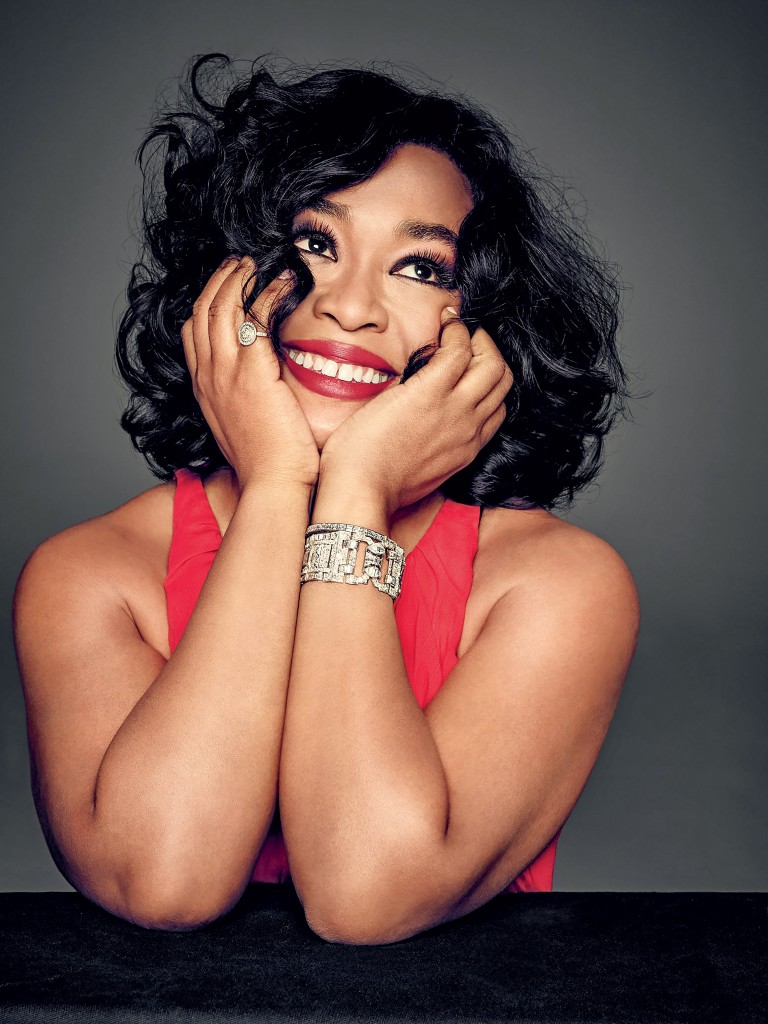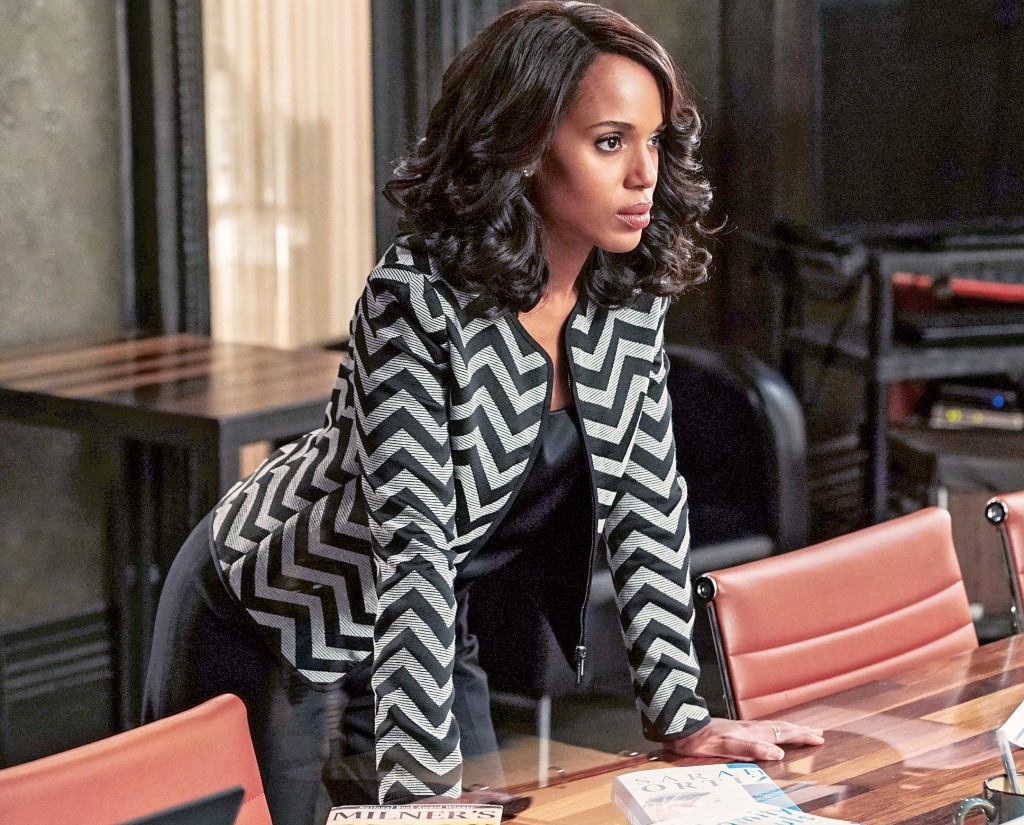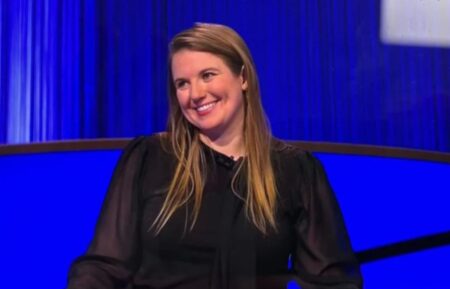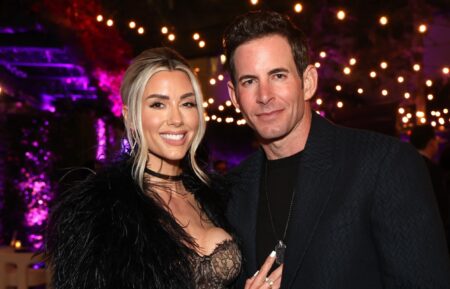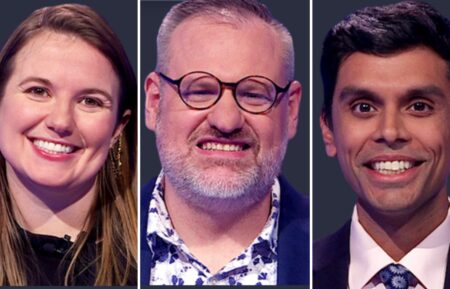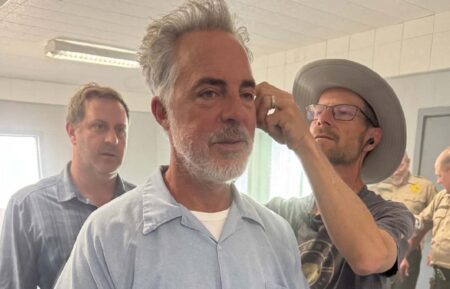How Shonda Rhimes Created the Most Powerful Brand in Television
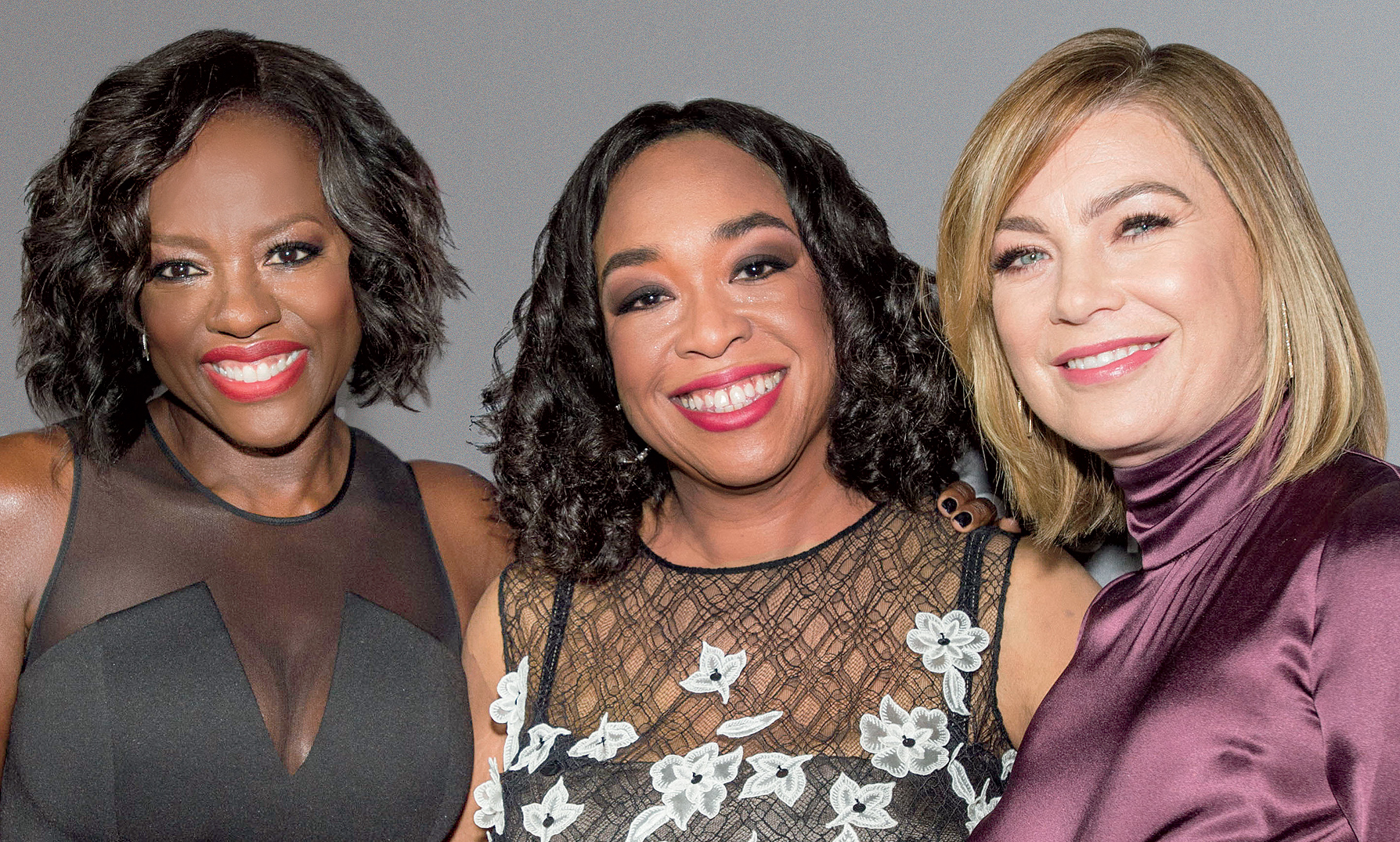
For TV Guide Magazine‘s first-ever Power Issue, the staff looked at the juggernauts dominating TV, from events to franchises to actors, producers, and other multihyphenates in show business. Here, we take a look at TV’s latest Power Brand. Plus: See the 5 producers who have become power mainstays on TV.
She’s the creative force behind Scandal and Grey’s Anatomy and an executive producer of How to Get Away With Murder. Her knack for crafting character-rich, intricately plotted and effortlessly diverse dramas inspired ABC to commit its entire Thursday lineup to her hyper-addictive hits and brand it “TGIT.” This spring, she’ll launch another promising female-driven drama, The Catch, starring Mireille Enos (The Killing) and backed by her own production company, Shondaland. What’s more, the single mom of three daughters recently became a first-time author with the publication of her memoir, Year of Yes.
RELATED: Here’s what to expect in tonight’s How to Get Away With Murder midseason finale
But for Shonda Rhimes, TV phenomenon and pioneer, the definition of success boils down to one simple question. “It’s literally just: Am I happy?” she says. “Has my day gone well? If you’re not having a good time at work, you’re doing the wrong job. I feel lucky that I love what I do.”
What did you think when you first heard ABC wanted to devote an entire night to your shows?
I know everybody gave a lot of importance to the fact that everything was going to be on Thursday night. But not one single thing in my life changed, other than the fact that everybody kept saying, “Oh, my God, all your shows are on one night!” [Laughs] I always say, “My job is to make the shows.” I don’t program the shows. I don’t care about the ratings. I made a conscious decision not to pay attention to any of that. But I do respect how well ABC has marketed the shows and TGIT’d the whole thing. They’ve made it into a great experience for the audience, and that’s been really special.
What were your goals when you started Shondaland?
I used to say, jokingly, but not really joking at all, “I want to take over the world through television.” I really wanted to build a company, make shows and make a home for other writers. We’re developing seven projects right now, and over 70 percent of those are created by people who started out here as staff writers. We call it Shondaland University. We’re growing people, and that’s really nice, because they all understand the brand.
How would you describe the Shondaland brand?
Shows with three-dimensional characters. Stories that you can’t tell in a simple fashion. You shouldn’t be able to tell us what the show’s about in one sentence. And we want the stories to have heart. Whether you’re loving the characters or hating them, you should be leaning toward your television while you’re watching them. It should be a great ride.
Your shows have also been hailed as groundbreaking because of their diversity.
That wasn’t a goal, only because for me, it just seems obvious that [diversity] should be happening anyway. I wouldn’t have been able to make television any other way. It just wouldn’t have occurred to me.
Still, do you take pride in the fact that, partly because of the success of your shows, TV as a whole is becoming more diverse?
I have to say, I don’t really spend a lot of time thinking about it. It’s not useful. But I’m glad that other people are making shows that look like the normal outside world. Welcome to the 21st century, everybody! [Laughs]
Did you always want to be a storyteller?
I thought I was going to be a novelist. I really did want to be Toni Morrison when I was growing up. But then you sit down to write the esoteric, deep, Pulitzer Prize–, Nobel Prize–winning novel and discover that isn’t really what you want to do. You’re not that person. So to discover that there is something that felt completely natural—writing television—was such a great joy for me.
Have you ever had a professional disappointment that you turned into a success?
A pilot I wrote [before Grey’s Anatomy] for ABC about war correspondents is still one of my favorite things I’ve ever written. It wasn’t picked up. But I took that idea of competitive, strong women who drank too much, had too much sex and really loved their jobs and lived for what they did—women I knew—and I put them in the hospital on Grey’s.
Are you still sometimes surprised by how passionate fans can get about your series?
Sometimes it’s stunning. When Derek [Patrick Dempsey] died on Grey’s, I got all these emails from people who were like, “I cannot believe you did that. I’m sobbing!” And Time did an online article about how to grieve a fictional character. I was like, “What is happening?” [Laughs] But I also took it like, I’m extraordinarily grateful that, after 11 seasons, people were reacting that way. That, to me, was the ultimate compliment.
RELATED: Shonda Rhimes on Why McDreamy Had to Die
What’s the best part of being at this stage in your career?
The best part is getting to type “Interior Oval Office, Day” and then go downstairs [to the Scandal set] and sit in the Oval Office that someone built for me. And then go [to the Grey’s set] and grab paddles and yell “Clear” and play doctor. I’m not kidding. It’s the ultimate playground. I get to imagine for a living. There’s nothing better than that.
What are your goals for the future?
We’d like to expand what we’re doing in Shondaland. We’d definitely like to do a comedy and get a couple more shows up and running by some of our other writers. After that, we’ve talked about movies. We’ll see!
From TV Guide Magazine
How 'Countdown' Recruited Jensen Ackles to Go Full 'Die Hard'
Countdown boss Derek Haas talks creating the character around Ackles, and the cast teases the “Avengers”-like team of the crime thriller. Read the story now on TV Insider.

